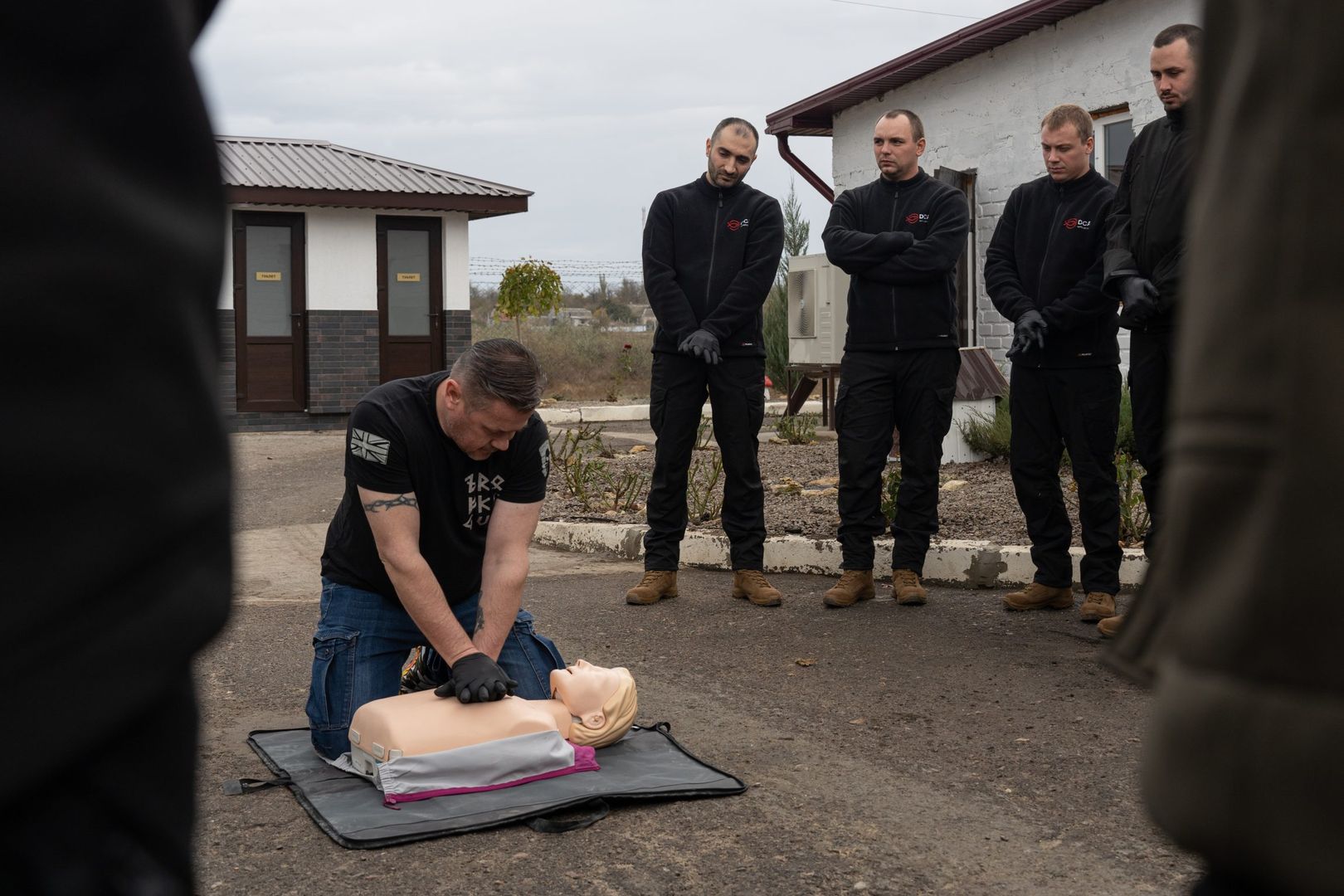Ukraine is one of the countries in the world with the most areas contaminated with mine- and explosive remnants of war. In 2022, Ukraine had the second highest number of people killed and injured by mines and unexploded ordnance, second only to Syria, according to OHCHR.
DanChurchAid (DCA) works in Ukraine to search areas and register finds of unexploded ordnance, after which the munitions are removed or demolished. To that end, teams of trained deminers, funded by the European Union, are working in Mykolaiv.
As part of their training to become deminers or educational experts on the hazards of mines to civilians, 29 newly employed DCA staff have been trained in First Aid in November 2023. Their work in areas with risks of explosive ordnance will minimise the number of accidents, injuries and deaths caused by improper behavior around explosives.
However, the job is not without perils. Inherently, when working with mines or explosive remnants of war, there is a risk of life-threating situations occurring. Therefore, it is vital for all the employees to have a thorough understanding of first aid.
Over five days, all the future deminers and Explosive Ordnance Risk Education (EORE) specialists participate in in-depth first aid training carried out by DCA medical staff. During the training, the 29 participants tried real-life first aid simulations, got familiar with the full content of their individual first aid kit (IFAK), and were taught about a wide range of injuries as well as the correct treatment for each.
“The knowledge and skills are critical for them to have. Unfortunately, it can get ugly out there. All these skills are also applicable in their private lives should they ever be involved in a car accident or other life-threatening situations. These skills will stay with them for life,” says Gerhard Pretorius, medical coordinator at DCA Ukraine.
The training is required for deminers, who are deployed to the field under a project funded by the European Union with 2.1 million EUR to reduce the risk of unexploded ordnance harming civilians in Ukraine. This is done by identifying hazardous areas while also referring vulnerable population for legal and psychological assistance.








How is DCA expanding activities in Mykolaiv?
The European Union has supported DCA Ukraine with funds to reach over 150,000 Ukrainians in the Mykolaiv region.
DCA Ukraine will identify and survey hazardous areas, map protection needs and risks, conduct tailored explosive ordnance risk education (EORE), and identify cases for legal aid, and social support services.
The target group for the project includes war-affected civilians in the Mykolaiv region, specifically those with damaged homes, former hostages, torture victims, and people living with injuries caused by the war. The project also extends assistance through DCA’s Ukrainian partner organisation Right to Protection to the families of deceased or missing individuals, as well as supporting the elderly, internally displaced persons, and first-line responders.


